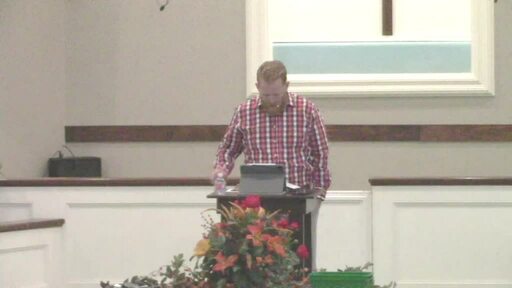When Sin Comes Knocking Part 1

How we respond with Sin comes to our door, is a direct reflection of our personal relationship with the Lord.
The Hebrew verb used here, ravats, normally indicates lying down, as in resting (29:2; Isa 11:6); it can also refer to lying in wait like a predator does when waiting for prey (Gen 49:9).
The Hebrew word used here, teshuqah, also occurs in 3:16 in relation to Eve’s desire for her husband. Both here and in the curse of 3:16, the context is negative: The desire represents something to be resisted, as it is connected to sin.
I. Cain’s Response
Genesis 4 introduces the theme of conflict between brothers. This theme will return in the story of Jacob and Esau (25:19–34; 27:1–45) and again with Joseph and his brothers (37:1–35). In each story an older brother is passed over in favor of the younger. The narrative illustrates the deepening effects of sin in the world.
The Hebrew word order here may hint that Cain brought whatever was close at hand while Abel brought the best of what he had (Gen 4:4). Cain’s offering could also be of poor quality, but there is no direct statement about this in the text.
Abel’s offering seems to demonstrate great care and attention to his relationship with Yahweh. He offers exactly what later texts indicate Yahweh requests of his people (Exod 13:12; Num 18:17). By offering the firstborn and best portions, Abel makes the greater sacrifice and reflects a righteous attitude (Prov 3:9).
